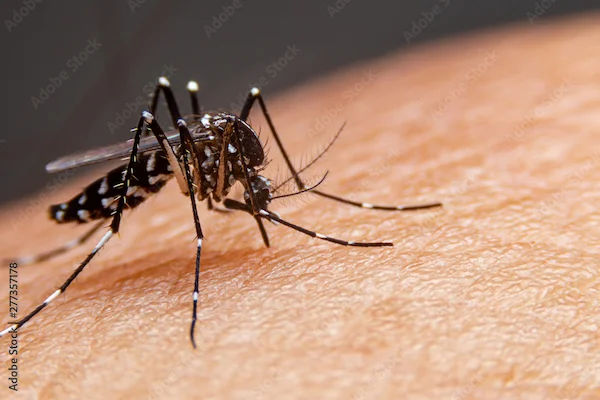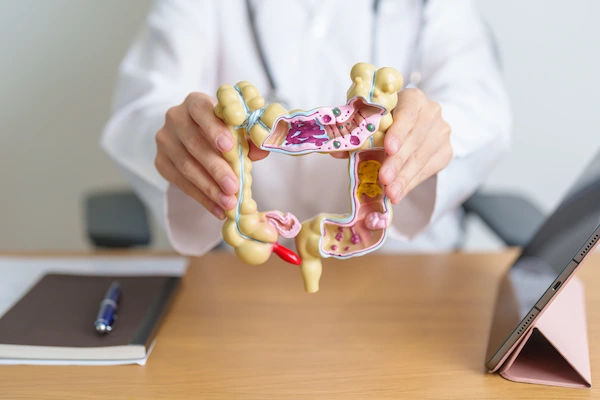How to Reduce LDH Level?
Discover effective strategies to reduce LDH levels, including medications, lifestyle changes, dietary strategies, supplements, treatments and preventive measures for underlying conditions.

Written by
Last updated on 3rd Jul, 2025
Lactate dehydrogenase (LDH) is an important enzyme in energy production throughout the human body. It helps convert glucose into energy, mainly under anaerobic conditions. However, its clinical relevance comes to light when damage or stress is caused to the cells where LDH accumulates and is released into the bloodstream.
Raised LDH levels can be a sign of trauma, infection, dysfunction of the liver, cancer and very intensive physical exercise. Additionally, LDH shows its importance in the medical diagnostic and treatment management of conditions such as myocardial infarction.
Understanding the factors that influence LDH levels can provide valuable insights into overall health.
Diagnostic Evaluation of LDH Levels
Lactate Dehydrogenase (LDH) levels are usually assessed immediately following a venipuncture blood test or, in some cases, by cerebrospinal fluid (CSF) analysis. LDH tests work by measuring the level of enzymes in the blood to see how tissue damage affects organs such as muscles and the liver. In addition, the LDH isoenzyme test further helps identify the specific source of this damage.
Lactate Dehydrogenase (LDH) measures in units per litre (U/L) of blood are prone to variation depending on age and laboratory standards used. Levels higher than 280 units per litre indicate tissue damage or disease; normal levels are from 140 to 280 units per litre. More severe cellular destruction warrants further investigation.
High LDH is associated with several medical conditions, such as:
Liver disease (hepatitis, cirrhosis)
Blood disorders (hemolytic anemia, leukemia)
Cancer (lung, breast, lymphoma)
Heart disease (myocardial infarction, pericarditis)
Lung conditions (pneumonia, pulmonary embolism)
Muscle injuries or trauma
Chronic inflammation
Infections
Medical Treatment Options in High LDH Levels
Management of the underlying medical condition determines which approach is best therapeutically for elevated lactate dehydrogenase (LDH). Pharmacological interventions that could be used include:
Anti-inflammatory agents for the treatment of infections or inflammatory disorders.
In conditions where LDH elevation is associated with malignancies, chemotherapeutic agents are used.
Hepatoprotective medications to help in the management of hepatic disorders.
In addition, specific pharmacological agents have been identified which have the potential to diminish LDH levels, including:
Pentoxifylline: A therapeutic agent which tends to increase lymphocyte count and reduce serum LDH concentration.
Ascorbic (Vitamin C) acid: A compound that helps with the reduction of LDH levels.
Metformin: An antidiabetic medication capable of decreasing LDH concentrations.
Galloflavin: A naturally occurring compound which is also an LDH inhibitor and has anti-proliferation properties to malignant cells.
Oxamic acid – A selective inhibitor of lactate dehydrogenase.
Progress needs to be monitored regularly. LDH tests are recommended by a healthcare provider to determine whether treatment is effective and adjust if needed.
Lifestyle Changes to Manage LDH Levels
Making certain lifestyle changes can help in reducing LDH levels. Here are some effective strategies:
Balanced Diet
LDH levels can be managed effectively through a healthy diet:
Including more antioxidants such as:
Vitamin C: Citrus fruits, bell peppers, strawberries
Vitamin E: Almonds, sunflower seeds, spinach
Polyphenols: Green tea, dark chocolate, grapes
Choosing healthy fats (foods rich in omega-3s like fish and nuts).
Limiting processed and sugary foods
Avoiding Alcohol and Tobacco Products
Both the consumption of alcohol and the use of tobacco have harmful consequences for general health. They play a major role in causing liver damage and inflammation, which often results in elevated LDH levels.
Cutting back on or completely stopping alcohol consumption gives the liver a chance to heal while quitting smoking enhances lung performance and decreases systemic inflammation—both of which can aid in effectively managing enzyme levels.
Regular Exercise
Exercise helps to maintain overall health without excessively increasing LDH. Recommended activities include:
Brisk walking or yoga for cardiovascular health
Muscle function improving using strength training
Prevent the excessive muscle breakdown with low-impact exercises
Stress Management
Chronic stress can result in several health problems. Techniques to manage stress include:
Meditation and mindfulness practices
Engaging in recreational activities
Yoga and gentle stretching
Spending time in nature
Listening to calming music
Adequate Sleep
Aim for 7-9 hours of quality sleep each night to allow the body to recover and maintain optimal health.
Establish a consistent sleep routine by going to bed and waking up at the same time every day.
Consult Top Dietician
Dietary Strategies for High LDH Levels
A healthy, nutritious diet helps repair the tissues and lower the LDH levels. Chronic inflammation can contribute to cell damage, leading to elevated LDH levels. Incorporating anti-inflammatory foods can help reduce inflammation and support cellular health.
Recommended foods include:
Leafy greens (spinach, kale, broccoli)
Berries and citrus fruits (rich in antioxidants)
Whole grains and legumes (fibre-rich for digestive health)
Nuts and seeds (walnuts, flaxseeds, chia seeds)
Fatty fish (salmon, mackerel, sardines)
Olive oil
Turmeric and ginger
Foods that can contribute to activation of the immune response and increased LDH include:
Processed meats and fried foods
Excessive sugar and refined carbohydrates
Alcohol and caffeinated beverages
Hydrogenated oils and margarine
Drinking enough water helps flush out toxins, supports organ function, and promotes overall health. Aim for 8-10 glasses of water daily. For added benefits, include herbal teas and coconut water.
Role of Supplements and Natural Remedies
Certain vitamins and minerals help with cellular repair and overall health.
Vitamin C (immune function support, and referred to as antioxidant).
Omega-3 Fatty Acids (fish oil supplements, flaxseed oil, chia seeds)
Magnesium ( Muscle and nerve function)
Coenzyme Q10 (supports heart health)
Among these herbal compounds, these can potentially manage the LDH levels:
Turmeric (curcumin): Anti-inflammatory properties
Grapes, red wine: Regulate activity of enzymes.
Quercetin (onions, apples): Antioxidant effects
The Importance of Regular Monitoring of LDH Levels
Routine testing ensures timely intervention. The recommended schedule may include:
Every 6-12 months for healthy individuals
More frequent testing for those with chronic illnesses
Lactate dehydrogenase (LDH) test results records are critical for trend maintenance and for medical decisions. Elevated LDH levels can be regularly monitored to evaluate response to treatment and identify disease progression, recognizing medical conditions early and improving patient outcomes.
Additionally, these records provide data that reflects overall cellular health, which is absolutely necessary to provide an accurate diagnosis and effective treatment.
When to Seek Professional Help with Increased LDH?
Severe conditions can be warned of by high LDH levels. Seek medical advice if experiencing:
1. Persistent Symptoms
Persistent fatigue or weakness
Unexplained weight loss
Shortness of breath or chest pain
2. Underlying Health Conditions
Chronic Diseases: Any history of chronic diseases such as liver disease, heart disease, or cancer, and any noticeable changes in symptoms.
Infections: Suspecting an infection or having symptoms such as fever, chills, or persistent cough.
3. Abnormal Test Results
If blood tests show consistently high LDH levels, it's important to consult with a healthcare provider to determine the underlying cause.
The usual reference range for LDH levels in adults is between 140 and 280 U/L. Nonetheless, specific ranges may differ based on the laboratory and the patient's age or health status.
It is necessary to receive a professional consultation to know the causes of high LDH and advice on treatment. Additional tests may be ordered by a doctor, or a specialist can be consulted.
Preventive Measures During High LDH Levels
Regular medical check-ups can help detect and treat health issues early. A comprehensive health plan should include screening tests along with LDH.
Maintaining balanced LDH levels can be achieved with an adopted proactive approach to health.
Balanced diet and hydration
Regular physical activity
Smoking and overdrinking must be avoided
Conclusion
To reduce LDH, it’s necessary to treat it, medically, change the diet, monitor it regularly and watch over one’s health. Striving to address underlying causes and making educated responses to the activities of our everyday lives allows for the effective management and optimal level of LDH, reflecting general overall wellness.
If high LDH levels persist, consult a healthcare professional for further evaluation and treatment.
Consult Top Dietician
Consult Top Dietician

Ms Malabika Datta
Dietician
19 Years • Bsc (Clinical Nutrition & Dietetics), Msc (Dietetics & Food Service Management)
Kolkata
Malabika’s Diet Clinic, Kolkata

Neelanjana J
clinical nutrition
3 Years • Bsc., Msc. Nutrition and Dietetics.
Bengaluru
Apollo Clinic, JP nagar, Bengaluru

Dr Darshana R
General Physician/ Internal Medicine Specialist
15 Years • MBBS, MD, DNB (Internal Medicine), Diploma in Allergy, Asthma and Immunology , Fellowship in Diabetes
Bengaluru
Apollo Clinic, JP nagar, Bengaluru
(100+ Patients)
Ms Chetu Singhi
Dietician
20 Years • MSC Dietetics & Nutrition
Kolkata
RB Diagnostic - Dietician Diet2fit Chetu Singhi, Kolkata

Ms Geetanjali Mengi
Dietician
20 Years • BSC, MSC Dietetics & Food Service Management, PG Diploma in Dietetics & Hospital Food Service
Mumbai
Geetanjali Medical Nutrition Clinic, Mumbai
Consult Top Dietician

Ms Malabika Datta
Dietician
19 Years • Bsc (Clinical Nutrition & Dietetics), Msc (Dietetics & Food Service Management)
Kolkata
Malabika’s Diet Clinic, Kolkata

Neelanjana J
clinical nutrition
3 Years • Bsc., Msc. Nutrition and Dietetics.
Bengaluru
Apollo Clinic, JP nagar, Bengaluru

Dr Darshana R
General Physician/ Internal Medicine Specialist
15 Years • MBBS, MD, DNB (Internal Medicine), Diploma in Allergy, Asthma and Immunology , Fellowship in Diabetes
Bengaluru
Apollo Clinic, JP nagar, Bengaluru
(100+ Patients)
Ms Chetu Singhi
Dietician
20 Years • MSC Dietetics & Nutrition
Kolkata
RB Diagnostic - Dietician Diet2fit Chetu Singhi, Kolkata

Ms Geetanjali Mengi
Dietician
20 Years • BSC, MSC Dietetics & Food Service Management, PG Diploma in Dietetics & Hospital Food Service
Mumbai
Geetanjali Medical Nutrition Clinic, Mumbai




.webp)